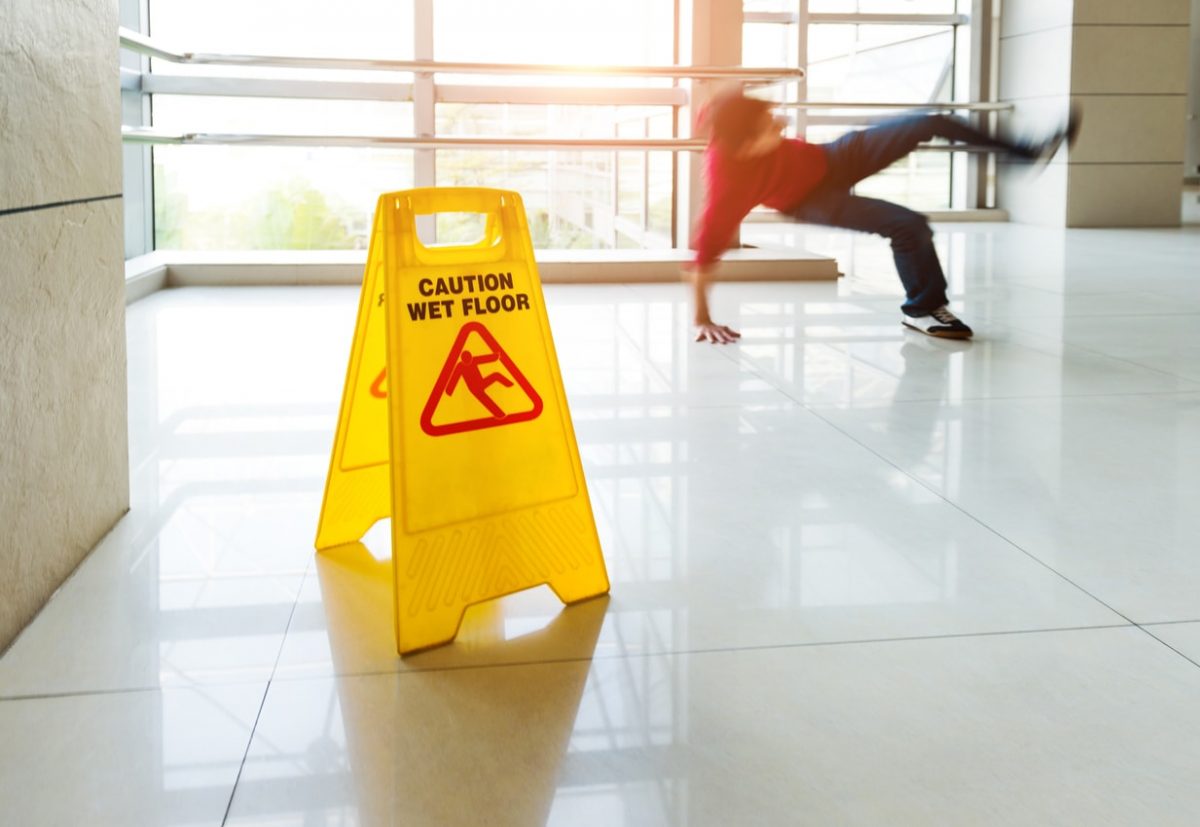October 4, 2019
It’s every real estate broker or agent’s nightmare situation: you’re showing potentially interested parties a new house or commercial space and someone ends up getting injured.
Whether it’s a slip and fall, bumped head, or something has fallen on them, any injury, no matter the cause or size of the damage, should be a major concern for real estate professionals. While not showing properties just isn’t an option, you can still find ways to make sure every part of the property you’re showing is safe and free of risks.
Here’s a look at what happens when someone sustains an injury on your property and what you can do to make sure this doesn’t happen.
Protect Yourself First
Real estate professionals are putting themselves in harm’s way by operating without a general liability policy. This kind of coverage is meant to protect those in the industry from many different claims that can befall a real estate professional, including slip and fall cases.
You can be a well-respected real estate broker in your area, but if you’re operating without a general liability policy, you could be operating without the protection needed to keep injury claims away.
While not a major probability, if someone sustains an injury while touring your listing, they could turn around and sue based on said injury and the ensuing medical bills that resulted from the event. Keeping yourself covered with general liability insurance can provide a financial security blanket by paying for these bills and subsequent attorney fees.
The Fallout from a Fall
If the broker or homeowner knew of a hazard on the property, such as big holes in the backyard or sharp edges not fixed in the kitchen, it’s possible they may have a duty to warn any visitors on the property.
If there are hidden hazards present, unbeknownst to the real estate professional, and no one would have reasonably known of its existence, the broker or homeowner wouldn’t have a duty to warn those coming to view the property.
No matter the reason, it may be enough of a case for someone who sustains an injury on your property to take their case to court or bring a claim against you to settle out of court, but still get something out of the situation at hand.
Eliminating Hazards
Real estate agents and brokers don’t always have immunity needed to be protected from unforeseen open house incidents. They need to take the necessary steps to keep everything above board and avoid negligence claims.
First, real estate professionals can start with a walk-through to spot any possible hazards. This will not only ensure that the residence is safe and sound but can also help to identify potential places in which anybody may become injured.
Next, when drawing up a listing agreement, it’s crucial that the real estate professional be aware of the terms and conditions. These usually contain important information that relates to liability, like when the seller or broker may be responsible for accidents.
If hazards can be dealt with by the real estate professional alone, such as removing a rug that moves when you walk on it, make sure to document it by taking a picture and writing down a note of what was moved. If certain hazards can’t be dealt with immediately, such as fixing exposed nails or wiring, or filling in holes in the yard, still notate what needs to be taken care of and make viewers aware of the hazards at hand.
About Associations Liability Insurance Agency (ALIA)
The ALIA Team (part of the Riverton Insurance Agency Corporation), specializes in helping real estate professionals find the affordable and comprehensive liability insurance they need, without the hassle. ALIA dates its roots to 1991 with the founding of FREA, Foundation of Real Estate Associates. In 2013, ALIA was created to work with multiple insurance companies thereby broadening the portfolio of products to customers. For more information about our products and services, contact us today at (800) 882-4410.


